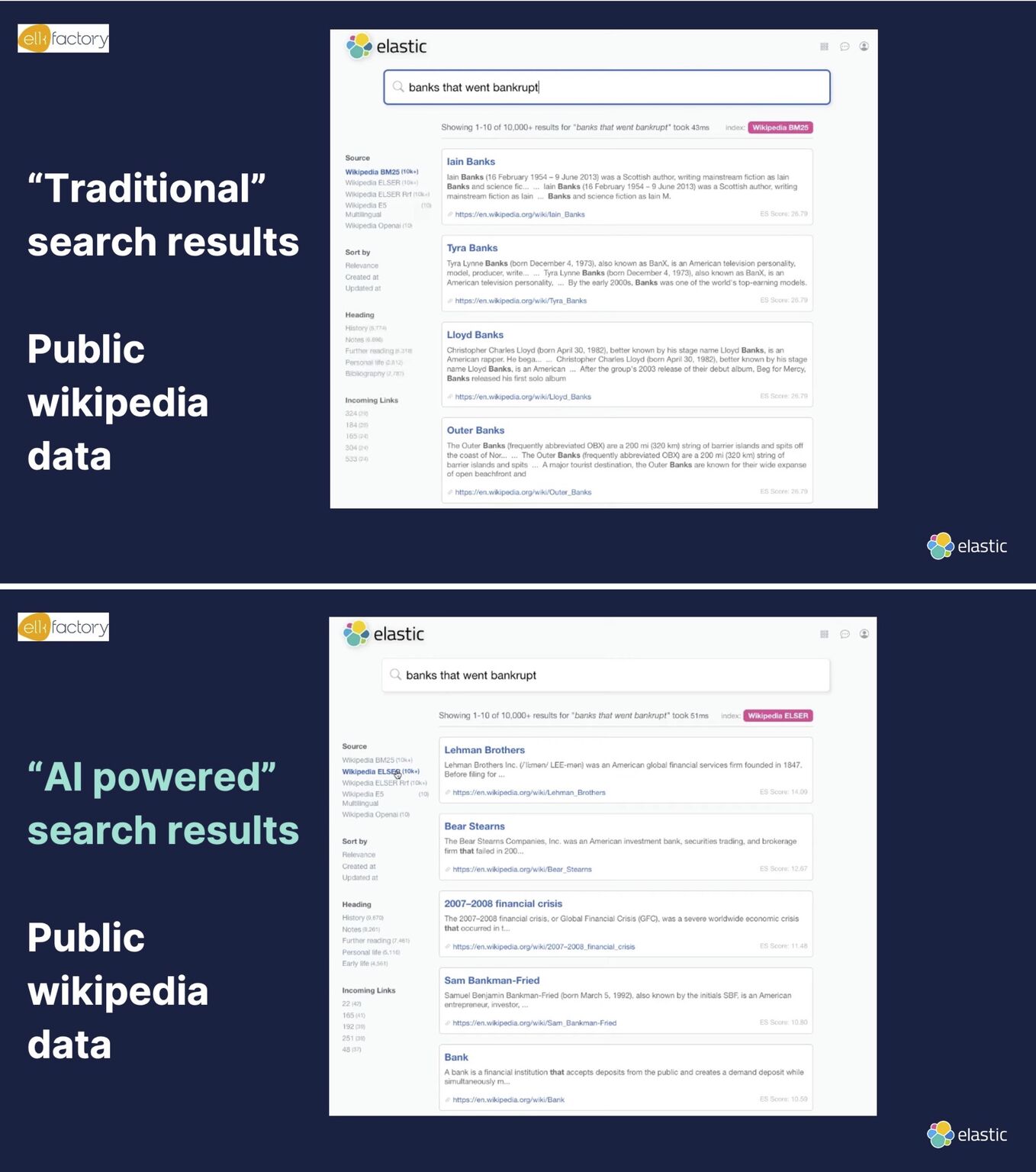
ENHANCING SEARCH EFFICIENCY WITH SEMANTIC SEARCH AND ELASTIC TECHNOLOGY
Efficient search capabilities are important for businesses to extract meaningful insights and stay ahead of the competition. Traditional keyword-based search methods often fall short in delivering accurate and relevant results, leading to frustration and inefficiency among users. Discover more about the topic of semantic search, a technology that leverages the power of natural language processing (NLP) to revolutionize your search experience. In this article, we explore how semantic search works together with Elastic technology to deliver superior search capabilities and drive business success.
Semantic search goes beyond simple keyword matching by understanding the context, intent, and meaning behind search queries. By analyzing the semantics of language, including synonyms, concepts, and relationships between words, semantic search engines can deliver more precise and contextually relevant results. This capability is especially valuable in industries such as government, e-commerce, healthcare, and finance, where precision and accuracy are very important.
Hereby an example to visualize the key difference between keyword search and semantic search:
A closer look at the differences between traditional “keyword search” and “AI-powered search results and answers” reveal the transformative potential of the AI-powered elasticsearch. We highlight the improved results delivered by AI-powered searches, making it clear why industries are increasingly adopting this technology. Note that the enhanced results come from out of the box elasticsearch functionalities:

To find out more about this example, click here.
SEMANTIC SEARCH IN ELASTIC TECHNOLOGY
Elastic provides a powerful platform for implementing semantic search capabilities, thanks to its powerful indexing, search, and analytics features. Here’s how semantic search works with Elastic technology:
Natural Language Processing (NLP)
Elastic leverages advanced NLP algorithms to parse and analyze unstructured text data, extracting key concepts, entities, and relationships. This allows the search engine to understand the meaning and context of user queries, leading to more accurate search results.
Semantic Indexing
Elastic indexes the analyzed text data using semantic metadata, such as entity types, attributes, and relationships. This semantic indexing enables the search engine to retrieve relevant documents based on the semantic similarity between the query and indexed content, rather than relying solely on keyword matches.
Concept-based Retrieval
When a user submits a search query, Elastic retrieves documents that contain semantically related concepts, even if they don’t explicitly match the query keywords. This concept-based retrieval ensures that users receive comprehensive and relevant results, enhancing their search experience.
Query Expansion and Disambiguation
Elastic automatically expands and disambiguates user queries by identifying synonyms, variants, and related concepts. This helps users refine their search queries and discover relevant information that may not have been initially apparent.
Relevance Ranking
Elastic employs sophisticated relevance ranking algorithms to prioritize search results based on their semantic relevance to the user query. By considering factors such as context, entity salience, and document quality, Elastic ensures that the most relevant and authoritative content appears at the top of the search results.
By integrating semantic search capabilities into their applications and websites using Elastic technology, businesses can unlock a plethora of benefits:
Improved Search Accuracy
Semantic search enhances the accuracy and precision of search results, enabling users to find the information they need quickly and effortlessly.
Enhanced User Experience
By understanding user intent and context, semantic search engines deliver a more intuitive and personalized search experience, leading to higher user satisfaction and engagement.
Increased Productivity
With semantic search, employees and website visitors can access relevant documents, insights, and knowledge resources more efficiently, boosting productivity and decision-making effectiveness.
Historically, Elasticsearch and App Search required manual management of synonyms, boosts, and weights to fine-tune relevance in search results. However, with the introduction of Elastic semantic search, these manual tasks are no longer necessary. Elastic semantic search usesadvanced algorithms and natural language processing techniques to automatically handle relevance tuning, ensuring that search results are highly accurate and contextually relevant without the need for manual intervention. This not only saves businesses time and resources but also improves the overall search experience for users by delivering more precise results tailored to their needs and preferences.
Competitive Advantage
Businesses that leverage semantic search gain a competitive edge by offering superior search capabilities that outperform those of their competitors, leading to increased customer loyalty and market share.
In conclusion, semantic search powered by Elastic technology represents the next frontier in information retrieval and knowledge discovery. By harnessing the semantic capabilities of Elastic, businesses can elevate their search experiences to new heights, driving innovation, efficiency, and success in the digital age.
Start implementing semantic search with Elk Factory and discover the full potential of your data.

